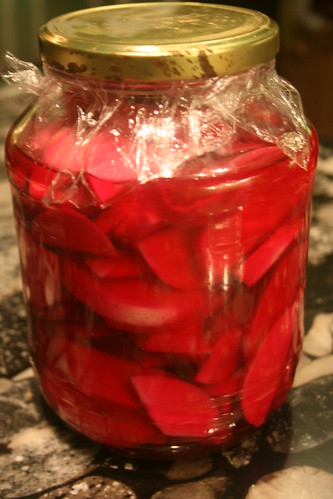Lesson 3: To Go (future, past), intro to numbers, negatives and questions
Review:Lesson 1
· Personal Pronouns
· To Be (Present, Past Tenses)
· School related words
Lesson 2
· To Be (Future Tense)
· To Go (Present Tense)
Lesson 3
· To Go (Future Tense)
· To Go (Past Tense)
· Numbers in Surath, Part 1
· Negatives and Questions
BEGIN LESSON 3Note: We will begin this lesson by introducing a simple word, ‘OR’. In English, the word ‘or’ is used quite often, to differentiate between this or that. In Surath, the translation of the word ‘or’ is ‘yen’. So, if you see the word yen written anywhere, you will know what it means.
Preliminary Notes:The capital letter T will be used to signify the sound TD’ (not used in the English language), which is used in words such as
Tura (mountain),
TawAtha (as in, psheyna b’TawAtha), or
T-eema (as in mar-T-eema). To pronounce this letter, press the middle of the tongue against the roof of the mouth a little farther back than the teeth. This is not your standard T sound. It is cushioned, sort of like a cross between T and D.
______________________________
VERB: TO GO
ROOT: izzal (ܐܸܙܲܠ)TENSE: FUTURE
I will go - āna bid zāl-ee (yen) āna b-zāl-ee
(Note: the word ‘bid’ is often shortened to simply ‘b’, which would change ‘āna bid zāl-ee’ to ‘āna b-zāl-ee’)
You (m) will go - āyit bid zāl-ukh (yen) āyit b-zāl-ukh
You (f) will go - āyat bid zāl-akh (yen) āyit b-zāl-akh
He will go - āwo bid zāl-eh (yen) āwo b-zāl-eh
She will go - āyee bid zāl-ah (yen) āya b-zāl-ah
We will go - akhny bid zāl-an (yen) akhny b-zāl-an
Ye/Yall will go - akhtun bid zalotun (yen) akhtun b-zal-otun
They will go - anee bid zāl-ay (yen) anay b-zāl-ay
Note: You may recall from Lesson #2 that the present tense of the verb ‘To Go’ (izzal) is conjugated in a very similar fashion. Note how similar the present tense is to the shortened version of the future tense:
Example:I go - āna
k-zāl-ee
I will go - āna
b-zāl-ee (or) āna bid-zāl-ee
__________________________
VERB: TO GO
ROOT: izzal (ܐܸܙܲܠ)TENSE: PAST
I went - zil-ly
You (m) went - zil-lukh
You (f) went - zil-lakh
He went - zil-leh
She went - zil-lah
We went - zil-lan
Ye/Yall went - zil-lokhun
They went - zil-lay
Note: Notice that the personal pronouns were omitted with this conjugation. The reason for this is that you should have the words I, he, she, you, y’all, and they memorized. A secondary reason for this is that, unlike English but very similar to Spanish and many other languages, the conjugation of the verb in Surath implies which pronoun should be used.
COMPARISON AND CONTRASTIn English, the same verb is used for I, you, he, she, and they, which makes the personal pronoun incredibly important to the meaning of the verb when used in a sentence:
I went
She went
They went
We went
Whereas in Spanish, the verb changes as it is conjugated, so the pronoun can be omitted:
I went -
fuiHe went -
fueThey went -
fueronWe went -
fuimosI believe that most languages are conjugated more similarly to Surath (or Spanish) than English. English is a highly irregular language.
__________________________________
NUMBERS IN SURATH: PART ONENote: I have researched the number ‘zero’ in surath by asking dozens of people how to translate this. I received a few different answers. The rest of the numbers are far less controversial than zero.
Zero - Sipr
(Note: the word Zero in Arabic is sifr)
Some might just translate zero as ‘chu mindy’, but chu-mindy really translates to ‘nothing’, not ‘zero’
Note: Numerals in Surath have
both masculine and feminine translations
FEMININE NUMERALS
0 - sipr
1 - khdhā
2 - tit-ae
3 - Telath (Remember what we said about the T sound earlier!)
4 - arbae
5 - khamish
MASCULINE NUMERALS
(*click below to listen to sounds!)0 - sipr
1 -
khā2 -
trae3 -
tlatha4 -
arba5 -
khamsha__________________________________
NEGATIVES AND QUESTIONS1. Negatives
This is just a grammatical note: If you take a verb that we have already learned, such as ‘I am’ (Ana ee-win), and make a negative statement out of it, you must place the word ‘lea’ (no/not) before the verb in a sentence.
Example:
I am a father -
āna ee-win bābaI am a mother -
āna ee-wan yimmaI am not a father -
āna lea-win bāba (lea + eewin = leawin)I am not a mother -
āna lea-wan yimma2. Questions
If you want to form a question, place the verb BEFORE the subject.
Example:
Am I (m) a teacher? -
ee-win āna malpāna?Am I a daughter? -
ee-wan āna brāta?_________________________________
This concludes Lesson #3

